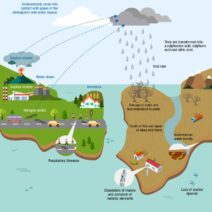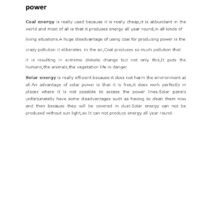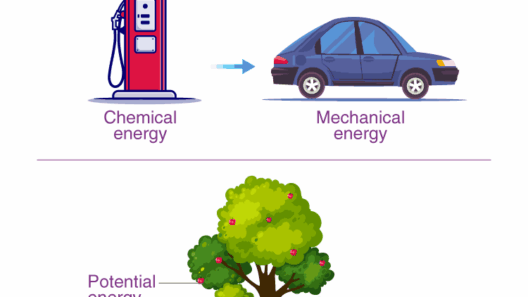In recent years, the discourse surrounding energy conservation has sparked intriguing questions about the intersection of technology, data accessibility, and environmental stewardship. Can the mere availability of energy data genuinely enhance conservation efforts? As we delve into this query, we must grapple with the profound implications such accessibility could have on individual behaviors, corporate practices, and even policy formulation. The fundamental challenge lies in whether making energy data more widely available translates into tangible conservation action, or if it merely remains an abstract ideal that fails to elicit a significant response.
At the heart of energy consumption lies an undeniable truth: knowledge is power. When individuals and enterprises become privy to their energy utilization patterns, they are better equipped to recognize inefficiencies and enact change. For example, households equipped with smart meters often receive detailed feedback about their energy consumption, prompting them to adjust behaviors, reduce waste, and ultimately save on bills. But, does this translate into a broader cultural shift towards energy conservation? Or do we risk falling into a complacent cycle, where data awareness breeds a false sense of security without driving action?
To dissect the potential benefits of accessible energy data, we must first examine its application in residential settings. Data accessibility allows users to visualize their energy consumption habits and identify peak usage periods. By analyzing this information, homeowners can adjust usage patterns, adopting more energy-efficient practices. But what happens when this data is interpreted through the lens of individual privilege or socioeconomic constraints? Not all households have the same capacity to implement high-efficiency appliances or adapt behaviors that reduce energy usage. Inequity in access to this information could exacerbate existing disparities, creating a gap between the eco-conscious and those who are unable to translate data into actionable behaviors.
Extending this conversation into the commercial realm reveals a similar dichotomy. Businesses that utilize sophisticated energy management systems can analyze vast amounts of data to identify areas of excessive consumption. Recognizing that energy efficiency not only fosters environmental benefits but also enhances profitability, many corporations are eager to adopt data-driven strategies. However, the challenge remains: do businesses prioritize profit over sustainability? The shift towards renewable energy solutions and conservation measures should be a priority for all, yet the pressure to deliver financial returns can stymie full commitment to conservation initiatives. Will the easy availability of data fortify corporate responsibility, or will it be relegated to a mere talking point on glossy reports?
Additionally, the role of government in facilitating data accessibility cannot be understated. Legislation that mandates transparency in energy consumption data for both individuals and corporations can foster a culture of accountability. Governments can harness this data to inform policy decisions, incentivize energy-efficient technologies, and regulate sectors that contribute significantly to carbon emissions. Nonetheless, the effectiveness of such policies relies heavily on public engagement and understanding. If citizens feel disconnected from the data presented, or if they view it as irrelevant or overwhelming, the intended impact may falter. Might we consider how best to bridge the chasm between data and civic responsibility, ensuring that the public comprehends not just the statistics, but their significance in the grander scheme of combating climate change?
On a more localized scale, community initiatives often thrive on accessible energy data. By aggregating information about collective energy consumption, neighborhoods or municipalities can launch tailored campaigns aimed at reducing energy use. When residents see their collective impact quantified in real-time, it spurs a communal sense of responsibility. Here lies a playful question: if communities band together, can they create a ripple effect that transforms energy habits at an unprecedented scale? The possibility remains tantalizing, yet the challenge is formidable. Grassroots movements require sustained commitment and education, alongside tangible incentives to drive long-lasting change.
Despite the promising potential of energy data accessibility, we must remain vigilant against potential pitfalls. One of the primary concerns surrounding the proliferation of energy data is the threat of data overload. As information becomes more widespread, there is a risk that individuals may become inundated with statistics and infographics, leading to disengagement rather than empowerment. How can we ensure that users are not only consuming data but also translating it into meaningful action? Simplicity and clarity in the presentation of data will be paramount if it is to inspire a culture of conservation rather than complacency.
Another significant factor to consider is the ethical implications of energy data accessibility. As data visibility increases, so too does the potential for surveillance and privacy concerns. Users may become wary of how their consumption data is utilized, leading to a reluctance to engage with platforms designed to promote energy conservation. Striking a balance between harnessing data for good and respecting individual privacy remains a critical challenge educators and policymakers must navigate.
The question of whether the accessibility of energy data boosts conservation efforts is layered and multifaceted. While the potential for increased awareness and action is undeniably present, the reality of implementation presents numerous challenges. The path forward will necessitate a collaborative approach, wherein individuals, corporations, and governments coalesce around the common goal of sustainability. It will require clear communication, community involvement, and ethical considerations to ensure that energy data catalyzes genuine conservation efforts rather than complacency. As we navigate this complex terrain, we must contemplate: is making energy data accessible enough to compel meaningful action, or does it merely serve as a stepping stone in a long journey towards true sustainability?








